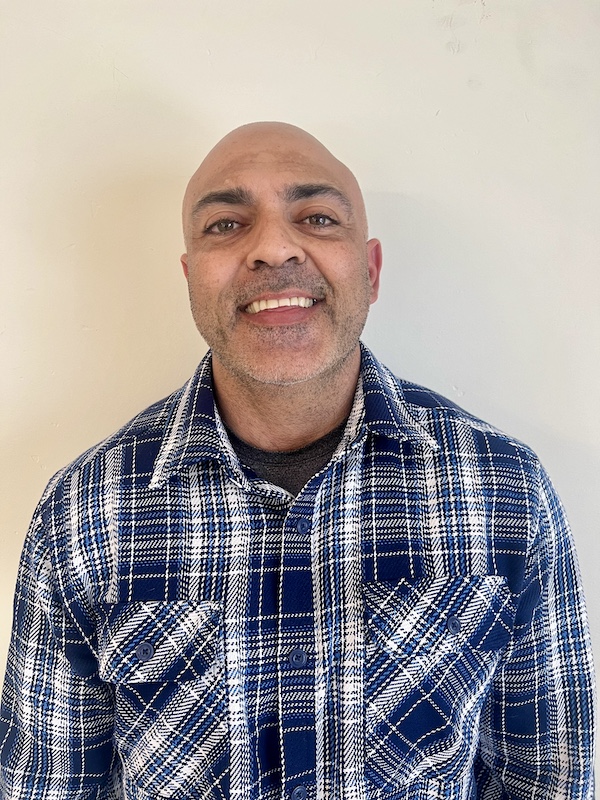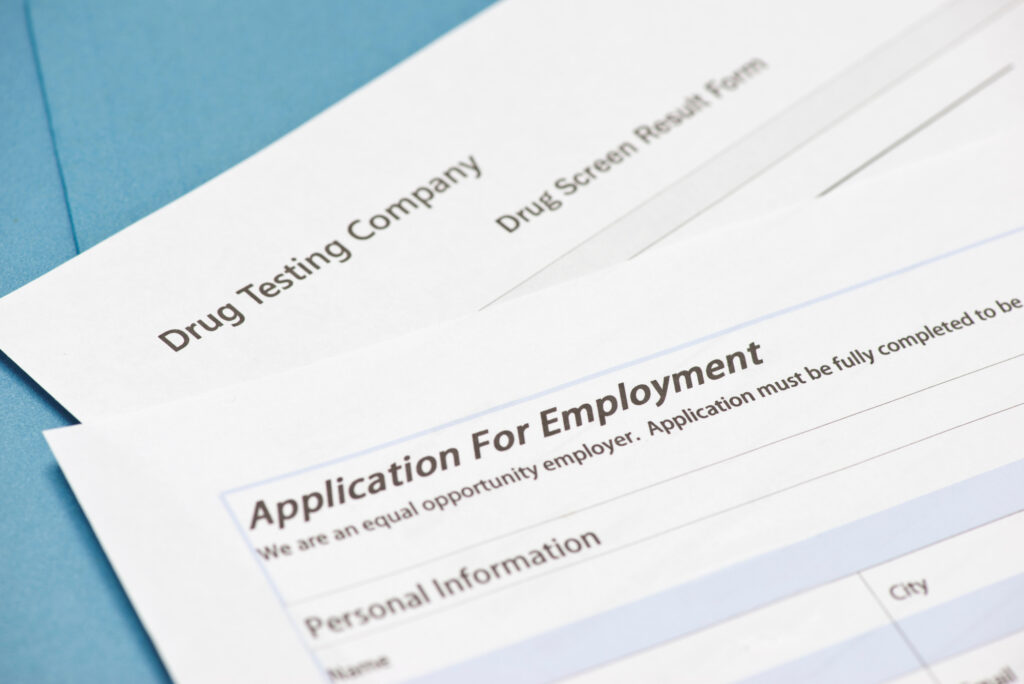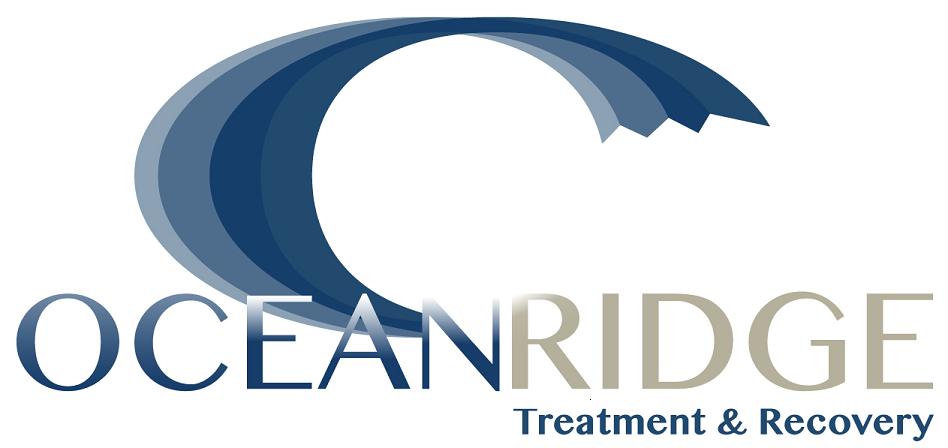Ocean Ridge Treatment & Recovery
Detox, Treatment, Recovery
Choosing to go to rehab is brave, but it can be stressful—especially if you worry that getting treatment for addiction might affect your personal life. We’re here to help you understand how going to rehab might impact your career and set you up for a smooth transition into and out of treatment.

Did you know that you have legal protections against losing your job for rehab-related reasons? Below are some of the most important legal protections to know about when considering addiction treatment.
The Americans with Disabilities Act (ADA) protects employees who seek treatment for drug or alcohol addiction. Under the ADA, substance abuse disorders are recognized as disabilities. This means that your employer can’t discriminate against you for seeking treatment. However, bear in mind that ADA protections apply to employees who are not currently using illegal drugs and are actively seeking treatment for their addiction.
The Family and Medical Leave Act (FMLA) is another form of protection for employees seeking addiction treatment. This act provides eligible employees with up to 12 weeks of unpaid, job-protected leave per year for specified family and medical reasons, which can include seeking treatment for substance abuse.
FMLA helps you take the necessary time off to get help without fear of losing your job. Keep in mind that, to be eligible for FMLA leave, you need to work for a covered employer, hold your job for at least a year, and have clocked at least 1,250 hours over the past 12 months.
Telling your boss about your struggles with addiction can be tough. While it can be stressful to initiate the conversation, it’s best to be completely honest about the nature of the situation rather than trying to come up with an alibi. Because of legal protections like the ADA, your boss is obligated to not terminate you on the basis of your decision to go to rehab.
Balancing work and rehab takes thoughtful planning and open communication with your boss. Here are some best practices to keep in mind:
Early Communication: Tell your boss about your need for treatment as early as possible.
Understand Your Rights: Get familiar with your legal rights under the ADA and FMLA and stick to your employer’s policies on leave and health issues.
Choose the Right Program: Choose a rehab program that accommodates your work schedule, whether it’s through flexible hours, outpatient services, or remote support options.
Plan Your Workload: Work with your boss to manage your workload while you’re away. Consider delegating tasks to teammates or setting up a temporary coverage plan.
Seek Support: Utilize resources such as Employee Assistance Programs (EAPs) for additional support during and after your treatment.

“Can I lose my job for going to rehab?” might not be the only career-related question on your mind as you pursue treatment for addiction. You might also be wondering whether you can balance your current work schedule with treatment.
Your ability to work while you get addiction treatment depends on the type of program you choose and your personal situation. Some programs for drug rehab in Orange County offer flexible schedules or outpatient services that can help you continue working while you recover.
Make sure you discuss your work needs with the care team at your rehab facility to find a program that best supports your goals of recovery and work. At Ocean Ridge, our team can help you find the ideal balance between your career and your journey into long-term sobriety.

Our medical, clinical, and counseling staffs on site are available 24/7.
Employee Assistance Programs (EAPs) are provided by employers to support employees facing personal challenges, including struggles with addiction. These programs offer confidential assessments, short-term counseling, and referrals to treatment facilities at no cost to you. By taking advantage of EAP services, you can navigate your recovery journey with added support and resources and chart out a smoother path toward a healthier life.
Now that you know the answer to the question, “If I go to rehab, will I lose my job?” let’s talk about going back to work after you finish treatment.
The transition back to work after rehab can be a challenge. Make sure you talk about any needed accommodations with your employer. A modified work schedule or ongoing therapy sessions could help you sustain your sobriety while you ease back into your career.
Thankfully, you’re protected from job loss due to rehab in most cases. That means you shouldn’t make fear of job loss a reason to avoid getting the care you need.
Balancing work with your recovery isn’t always easy, but it’s absolutely possible. We’re here to help you find the ideal treatment program for your unique situation. With both inpatient and outpatient treatment options, we can equip you for long-term sobriety without compromising your career. Contact us today to learn more about addiction recovery and how we can help you transform your life for good.

Bobby Nassiri is a seasoned Program Director and Business Development Director with over 12 years of experience in the behavioral health industry. Since earning his CADCII counselor certification in 2017, Bobby has been dedicated to improving the lives of individuals through compassionate care and innovative program development. Bobby’s expertise spans a wide range of areas, including strategic business growth, program management, and client counseling. His comprehensive approach to behavioral health ensures that every program he directs is both effective and empathetic, catering to the unique needs of each individual client. Outside of his professional endeavors, Bobby enjoys spending quality time with friends and family, practicing Brazilian jiu jitsu, and attending concerts. His diverse interests and commitment to personal well-being reflect his holistic approach to life and work.

So, you’ve decided to go to rehab. You’ve figured out where you want to go. You’ve figured out how to pay for it. You’ve figured out what to do about your job. Everything is falling into place except…

Failing a drug test can be a stressful and life-changing event, especially if it happens at work. Drug tests are often required by employers to maintain a safe and productive work environment. But if you fail, it could lead to consequences that impact your job and future opportunities.

Whether for mental health or drug abuse, seeing recovery is a courageous and important choice. But a lot of workers put off getting help because they’re concerned that it will affect their jobs.

Going to rehab can be a powerful experience. Here, you’re giving yourself the chance to pick up a new set of tools that will allow you to proactively deal with life, addiction, and cravings. At the same time, moving to rehab can be an incredibly lonely experience as you leave friends, family, and your home behind.

Leaving rehab can be daunting. The transition back into everyday life feels overwhelming for many in early recovery. Sober living homes can provide the vital support and structure needed to navigate this challenging yet crucial stage of your journey.

Addiction recovery is a tough journey, and it often takes a unique approach to tackle the physical and mental challenges of substance abuse. One exciting and effective method making waves in addiction recovery: Jiu Jitsu.

At Ocean Ridge, we understand that the demanding schedules, high-stress environments, and physical demands of a job at BNSF Railway can contribute to substance use issues. Our mission is to provide compassionate, effective treatment tailored to the needs of BNSF Railway employees, helping them reclaim their lives from addiction.

At Ocean Ridge, we get it—balancing a high-pressure career while seeking addiction treatment can feel overwhelming. That’s why our Executive Treatment program is here to make things easier, offering top-tier care in a private, confidential setting.

Addiction doesn’t discriminate—it can impact anyone, no matter their career or position. For professionals, juggling work responsibilities while trying to seek help can feel nearly impossible. You might not have the option to step away from your job entirely to focus on treatment. That’s why finding a rehab tailored to professionals is crucial.

Addiction doesn’t discriminate—it can impact anyone, no matter their career or position. For professionals, juggling work responsibilities while trying to seek help can feel nearly impossible. You might not have the option to step away from your job entirely to focus on treatment.

Now, more than ever, our friends, family, and loved ones need medical help for drug and alcohol abuse.
In fact, in 2020, 40.3 million Americans struggled with a substance use disorder. Our friends, family, and loved ones need help and compassionate care from quality drug and alcohol rehab centers.

The admissions process for Ocean Ridge Treatment and Recovery is quick and convenient. Our Drug Rehab and Alcohol Rehab programs are modern, effective, and based in clinical excellence.

The Georgia Sue house is a gorgeous six-bed facility in Laguna Hills that boasts a warm, upscale environment created to help our clients feel at home during their recovery journey.

The Del Campo House is a six-bed facility in beautiful San Clemente that offers clients both privacy and community. Surrounded by gorgeous natural views, this space provides those seeking help for substance abuse and co-occurring mental health disorders with everything they need to feel relaxed, supported and empowered.

For individuals seeking freedom from substance use, Narcotics Anonymous (NA) offers a free, compassionate and supportive community. With its emphasis on the 12-step framework, NA meetings in Orange County, CA provide recovering addicts with the tools and encouragement they need to achieve and maintain sobriety.

For many, Alcoholics Anonymous (AA) offers a vital foundation for recovering from alcohol addiction. With its supportive community, structured program, and proven success, AA provides alcoholics with the tools and encouragement they need to stop drinking and rebuild their lives.

Drug testing is a common practice in many industries to ensure workplace safety, compliance with regulations, and employee productivity. Employers across a variety of sectors often require drug tests during the hiring process, after an accident, or at random intervals to maintain a safe and drug-free work environment.
#300391BP | exp 08/31/2025

 Lorem Ipsum is simply dummy text of the printing and typesetting industry. Lorem Ipsum has been the industry’s standard dummy text ever since the 1500s, when an unknown printer took a galley of type and scrambled it to make a type specimen book. It has survived not only five centuries, but also the leap into electronic typesetting, remaining essentially unchanged.
Lorem Ipsum is simply dummy text of the printing and typesetting industry. Lorem Ipsum has been the industry’s standard dummy text ever since the 1500s, when an unknown printer took a galley of type and scrambled it to make a type specimen book. It has survived not only five centuries, but also the leap into electronic typesetting, remaining essentially unchanged.
It was popularised in the 1960s with the release of Letraset sheets containing Lorem Ipsum passages, and more recently with desktop publishing software like Aldus PageMaker including versions of Lorem Ipsum.
Ocean Ridge Treatment & Recovery
We firmly believe that the internet should be available and accessible to anyone, and are committed to providing a website that is accessible to the widest possible audience, regardless of circumstance and ability.
To fulfill this, we aim to adhere as strictly as possible to the World Wide Web Consortium’s (W3C) Web Content Accessibility Guidelines 2.1 (WCAG 2.1) at the AA level. These guidelines explain how to make web content accessible to people with a wide array of disabilities. Complying with those guidelines helps us ensure that the website is accessible to all people: blind people, people with motor impairments, visual impairment, cognitive disabilities, and more.
This website utilizes various technologies that are meant to make it as accessible as possible at all times. We utilize an accessibility interface that allows persons with specific disabilities to adjust the website’s UI (user interface) and design it to their personal needs.
Additionally, the website utilizes an AI-based application that runs in the background and optimizes its accessibility level constantly. This application remediates the website’s HTML, adapts Its functionality and behavior for screen-readers used by the blind users, and for keyboard functions used by individuals with motor impairments.
If you’ve found a malfunction or have ideas for improvement, we’ll be happy to hear from you. You can reach out to the website’s operators by using the following email
Our website implements the ARIA attributes (Accessible Rich Internet Applications) technique, alongside various different behavioral changes, to ensure blind users visiting with screen-readers are able to read, comprehend, and enjoy the website’s functions. As soon as a user with a screen-reader enters your site, they immediately receive a prompt to enter the Screen-Reader Profile so they can browse and operate your site effectively. Here’s how our website covers some of the most important screen-reader requirements, alongside console screenshots of code examples:
Screen-reader optimization: we run a background process that learns the website’s components from top to bottom, to ensure ongoing compliance even when updating the website. In this process, we provide screen-readers with meaningful data using the ARIA set of attributes. For example, we provide accurate form labels; descriptions for actionable icons (social media icons, search icons, cart icons, etc.); validation guidance for form inputs; element roles such as buttons, menus, modal dialogues (popups), and others. Additionally, the background process scans all the website’s images and provides an accurate and meaningful image-object-recognition-based description as an ALT (alternate text) tag for images that are not described. It will also extract texts that are embedded within the image, using an OCR (optical character recognition) technology. To turn on screen-reader adjustments at any time, users need only to press the Alt+1 keyboard combination. Screen-reader users also get automatic announcements to turn the Screen-reader mode on as soon as they enter the website.
These adjustments are compatible with all popular screen readers, including JAWS and NVDA.
Keyboard navigation optimization: The background process also adjusts the website’s HTML, and adds various behaviors using JavaScript code to make the website operable by the keyboard. This includes the ability to navigate the website using the Tab and Shift+Tab keys, operate dropdowns with the arrow keys, close them with Esc, trigger buttons and links using the Enter key, navigate between radio and checkbox elements using the arrow keys, and fill them in with the Spacebar or Enter key.Additionally, keyboard users will find quick-navigation and content-skip menus, available at any time by clicking Alt+1, or as the first elements of the site while navigating with the keyboard. The background process also handles triggered popups by moving the keyboard focus towards them as soon as they appear, and not allow the focus drift outside it.
Users can also use shortcuts such as “M” (menus), “H” (headings), “F” (forms), “B” (buttons), and “G” (graphics) to jump to specific elements.
We aim to support the widest array of browsers and assistive technologies as possible, so our users can choose the best fitting tools for them, with as few limitations as possible. Therefore, we have worked very hard to be able to support all major systems that comprise over 95% of the user market share including Google Chrome, Mozilla Firefox, Apple Safari, Opera and Microsoft Edge, JAWS and NVDA (screen readers).
Despite our very best efforts to allow anybody to adjust the website to their needs. There may still be pages or sections that are not fully accessible, are in the process of becoming accessible, or are lacking an adequate technological solution to make them accessible. Still, we are continually improving our accessibility, adding, updating and improving its options and features, and developing and adopting new technologies. All this is meant to reach the optimal level of accessibility, following technological advancements. For any assistance, please reach out to
